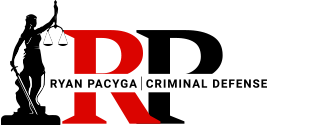Fall semester coursework is just over halfway complete for students in the Twin Cities, which generally means the toughest and most extensive work is yet to come. As the holidays approach, so do final exams, group projects, papers and other semester-end work.
Students face an increasing workload with equally inclined stress levels. Many students will choose to handle this increased pressure in productive ways, such as joining a study group, seeking an instructor’s help or spending more time in the libraries. Unfortunately, these are not the only types of study strategies used by students on campuses across the country, including those in Minneapolis.
Other students turn to study enhancement drugs to cope with their increased workloads near the end of the semester. Prescription stimulants for treating ADHD and narcolepsy are the common substances of choice, including Adderall, Ritalin, Concerta and Dexedrine. Students and their parents need to know the medical and legal risks associated with study drug use on college campuses.
Medical risks of study drugs
More than 20 percent of college students in the U.S report abusing prescription stimulants as a study enhancement technique. This means that 1 in 5 students seek out non-prescribed medications and take the risk of not only legal penalties, but potentially life-threatening medical consequences.
The basis of the appeal of study drugs is that they increase energy, alertness and attention for those taking the medications. These effects are also the medical risks associated with the drugs. They increase blood sugar, breathing, blood pressure and heart rates while decreasing the flow of blood in the body. A one-time use or repeated abuse of these medications can lead to overdose, heart failure, seizures, circulation failure and other life-threatening consequences.
Legal risks associated with study drugs
While many students have medical needs for these prescriptions, others purchase and take these drugs as a shortcut or other type of enhancement outside the bounds of actual medical needs. The purchase, sale and use of study drugs is a potential violation of both state and federal law, punishable by jail time, fines and other punishments.
More than 60 percent of students with prescriptions for these drugs report being asked or actually providing their medications to others for recreational use. Both the seller and buyer are in potential legal jeopardy for their part in a drug crime.
Students and parents need to know the risks associated with study drug use on campuses in Minneapolis and beyond. Study enhancements may seem like a quick solution, but their consequences can last much longer than final exam week.

